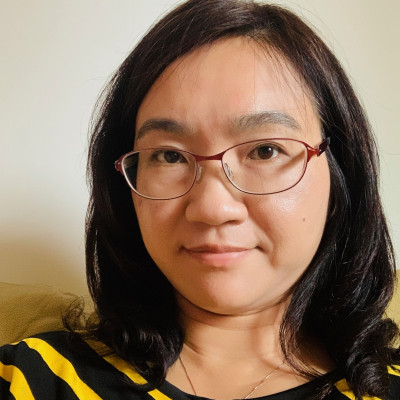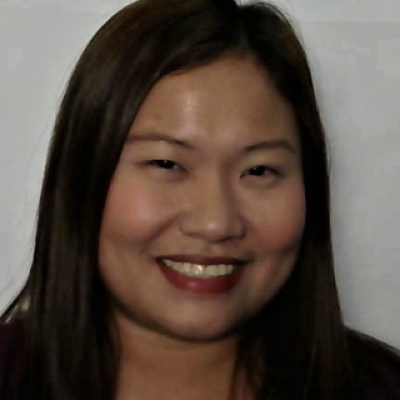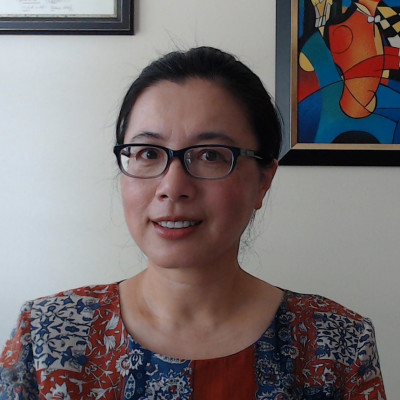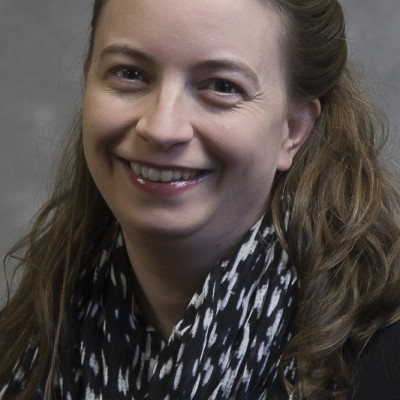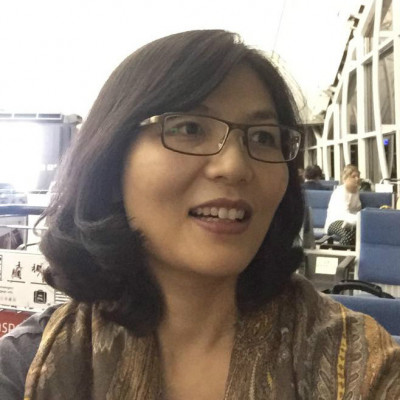Sessions / Forum (60 min)
A moderator will manage the forum. Three to four panel members will discuss a topic or question relevant to bilingual education. The panelists will exchange ideas related to the topic or question. The audience will be encouraged to participate in the discussion. The moderator will submit one form, which will include the following information: - forum title - 300-word abstract - concise information about the moderator and each panel member
Lesson Plan Design Principles and Key Points of Bilingual Teaching in Life Curriculum #2561
Having served as a review committee member for the results of the bilingual teaching plan and application plan, and as a supervising professor in several schools in some areas of primary and secondary schools for nearly one year, I will be sharing some guiding principles of Life Curriculum Design. In the process of reviewing and preparing lessons with each school, I found that most of the teachers in schools that implement bilingual teaching in the Life Curriculum have a background in English. Many teachers are less familiar with Life Curriculum. Therefore, they are prone to encounter difficulties when designing teaching plans. To help teachers better understand the life curriculum, I will briefly introduce the important concepts and principles of the Life Curriculum, through the "Life Curriculum" literacy-oriented teaching model map, which includes description 1) Life Curriculum view of children's learning; 2) The characteristics of students at this learning stage; 3) Basic concept of Life Curriculum, and 4) Key points when designing teaching plans. The basic principles of the English integration Life Curriculum course will be explained, providing educators resources and suggestions for bilingual teaching of Life Curriculum.
Bilingual Language Policy: The Case of the Philippines #2562
The evolution of the language policies in the Philippines can be traced historically and linguistically. The impact of colonization in the country made the English language the co-official language of the Philippines whereas the number of living languages prompted the selection of Tagalog- then later Filipino- as its national language. In order to achieve bilingual competence both in Filipino and English, Bilingual Education Policy (BEP) was implemented. BEP clearly defines the separate use English and Filipino as the media of instruction in specific subject areas at the national level at all levels. To date, BEP runs simultaneously with MTB-MLE in the current Philippine Education.
The Art of Straddling in Taiwan’s EMI/CLIL Classroom: A Progress Report #2529
Under Taiwan’s Bilingual Nation 2030 initiative, education of all levels has seen challenges and aspirations on the way towards the EMI/CLIL teaching model. Teacher training becomes critical as teachers play a pivotal role in successful transition from the monolingual context to the bilingual environment. University training programs are tasked with providing support to ease classroom teachers into the new approaches and additional language demand.
It is in this context that the presenter will report on the progress of a needs assessment project on teacher training. The virtual project involves observing ten recorded lessons and conducting online post-observation conferences with the ten teachers, who are of various STEAM subjects and different grade levels, ranging from 4 to 11. The project has found that the teachers, be they of English or STEAM, are struggling to straddle both content and language in the classroom. They appear to wrestle with the idea of having to break down silos and incorporate added learning aims. While teachers have relatively clear understanding of the EMI/CLIL approaches on the conceptual level, it is observed that making an EMI/CLIL lesson an organic whole requires sustainable training effort in the implementation stage.
The project is ongoing at the time of the conference; therefore, the presentation will summarize the progress thus far, including teachers’ various approaches to incorporate EMI/CLIL in the classroom and preliminary findings of the needs assessment. Audience will be informed of emerging training needs and thoughts on the design of a teacher training curriculum for the Taiwan context.
EMI and Bilingual Education: Principles, Prospects, and Challenges #2528
Addressing EMI Teaching Challenges with Creative and Flexible Pedagogy Dr. Adrienne Johnson
Abstract This session will focus on innovative approaches to teaching content (science, math, art, health, etc.) using English as a Medium of Instruction (EMI). Often, teaching in a student’s native language can seem completely different from English as a Medium of Instruction and, therefore, EMI can be very intimidating! However, teachers can apply many of the same effective teaching skills in a typical, native language classroom and in an EMI classroom. This session will first help participants to identify similarities between teaching in students’ native languages, and teaching in English. Then, the session will help to identify the unique challenges associated with EMI teaching. Finally, the session will provide examples of flexible and creative teaching strategies that will assist in designing and delivering an effective EMI lesson.
The Art of Straddling in Taiwan’s EMI/CLIL Classroom: A Progress Report Dr. Carolyn Ho
Under Taiwan’s Bilingual Nation 2030 initiative, education of all levels has seen challenges and aspirations on the way towards the EMI/CLIL teaching model. Teacher training becomes critical as teachers play a pivotal role in successful transition from the monolingual context to the bilingual environment. University training programs are tasked with providing support to ease classroom teachers into the new approaches and additional language demand. It is in this context that the presenter will report on the progress of a needs assessment project on teacher training. The virtual project involves observing ten recorded lessons and conducting online post-observation conferences with the ten teachers, who are of various STEAM subjects and different grade levels, ranging from 6 to 11. The project has found that the teachers, be they of English or STEAM, are struggling to straddle both content and language in the classroom. They appear to wrestle with the idea of having to break down silos and incorporate added learning aims. While teachers have relatively clear understanding of the EMI/CLIL approaches on the conceptual level, it is observed that making an EMI/CLIL lesson an organic whole requires sustainable training effort in the implementation stage. The project is ongoing at the time of the conference; therefore, the presentation will summarize the progress thus far, including teachers’ various approaches to incorporate EMI/CLIL in the classroom and preliminary findings of the needs assessment. Audience will be informed of emerging training needs and thoughts on the design of a teacher training curriculum for the Taiwan context.
EMI and Bilingual Education: Prospects, Challenges, and Practice Lori Robbins
This session will cover different bilingual teaching models and support in the United States. She will also discuss best teaching practices to reach English language learners of all levels. This session will give you a better understanding of the American bilingual education system, and you will leave with tools and strategies that you can implement in your classroom! Lori Robbins started her journey in education in 2010 as a high school Spanish teacher. She has also taught English as a Second Language for four years. Currently, she is an Instructional Coach and provides professional learning experiences to the teachers in her school. She specializes in creating an engaging classroom and incorporating technology in lessons. Bilingual education and multilingual students are huge passions of Mrs. Robbins, and she is excited to share what she has learned with you!
Principles for Exemplary Teaching of Bilingual Learners #2560
Dr. Yueh-Nu Hung's Talk is on the Six Principles for Exemplary Teaching of Bilingual Learners: Focusing on Supporting Language Learning. In 2021, eight Bilingual Education Research Centers of Taiwan put their brains together and drafted a list of six principles for exemplary teaching of bilingual learners. The ultimate goal is to compile a resource book for bilingual education teacher trainers. The six principles will be briefly introduced first, and then I focus on Principle 1 (Know your learners: Provide comprehensible input) and Principle 3 (Foster students’ social and academic language) and highlight some of the key issues related to language learning objectives planning and teachers’ target language competence and pedagogical knowledge. Dr. Joyce Chou's talk is on "Instructed Second Language Acquisition Perspectives" As instructed second language acquisition (ISLA) indicates, the goals and effects of instruction can be accordingly characterized as follows: instruction may enable learners to internalize new L2 knowledge so that they become more elaborate L2 users (with a richer vocabulary and more complex grammar); instruction may enable learners to modify or restructure their L2 knowledge and performance so that they become more accurate; instruction may enable learners to consolidate their L2 knowledge so that they can use the L2 with greater ease and for a wider range of tasks and functions so that they become more fluent language users. This research will look into how teachers can scaffold bilingual young learners’ L2 development. Dr. Yun-Li Hsu's talk will be on "Lesson Plan Design Principles and Key Points of Bilingual Teaching in Life Curriculum" Having served as a review committee member for the results of the bilingual teaching plan and application plan, and as a supervising professor in several schools in some areas of primary and secondary schools for nearly one year, I will be sharing some guiding principles of Life Curriculum Design. In the process of reviewing and preparing lessons with each school, I found that most of the teachers in schools that implement bilingual teaching in the Life Curriculum have a background in English. Many teachers are less familiar with Life Curriculum. Therefore, they are prone to encounter difficulties when designing teaching plans. To help teachers better understand the life curriculum, I will briefly introduce the important concepts and principles of the Life Curriculum, through the "Life Curriculum" literacy-oriented teaching model map, which includes description 1) Life Curriculum view of children's learning; 2) The characteristics of students at this learning stage; 3) Basic concept of Life Curriculum, and 4) Key points when designing teaching plans. The basic principles of the English integration Life Curriculum course will be explained, providing educators resources and suggestions for bilingual teaching of Life Curriculum.
Language Education Policies and Practices in Japan, Philippines and Brazil #2557
The ALT system in Japanese English language education and the evolvement of CLIL in Japan by Dr. Anthony Ryan. This talk firstly outlines the Assistant Language Teacher (ALT) system that is in place in the public school system in Japan. It briefly traces the roots of the system, describes the recruitment and orientation process, the role of the ALT in the EFL classroom and offers insights into the current working and living conditions of the ALTs interviewed by the presenter. Secondly, it then briefly describes the Japan CLIL Association - which was formed in April 2017 - and the activities of its members in terms of promoting CLIL across all levels of education in Japan. // Bilingual Language Policy: The Case of the Philippines by Ms. Remy J. Tulabut. The evolution of the language policies in the Philippines can be traced historically and linguistically. The impact of colonization in the country made the English language the co-official language of the Philippines whereas the number of living languages prompted the selection of Tagalog- then later Filipino- as its national language. Because of the emergence of two languages in the Philippines, Bilingual Education Policy (BEP) was implemented in order to use English and Filipino as the media of instruction in specific subject areas at the national level at all levels. To date, BEP runs simultaneously with MTB-MLE in the current Philippine Education. // Shades of English language teaching in Brazil by Lilian Montalvão. The current English language education scenario in Brazil is marked by significant shifts: from foreign language to lingua franca, from just a few weekly hours of traditional language teaching to bilingual education. This talk will provide an overview of the ongoing changes in the policies and practices in Brazil.
